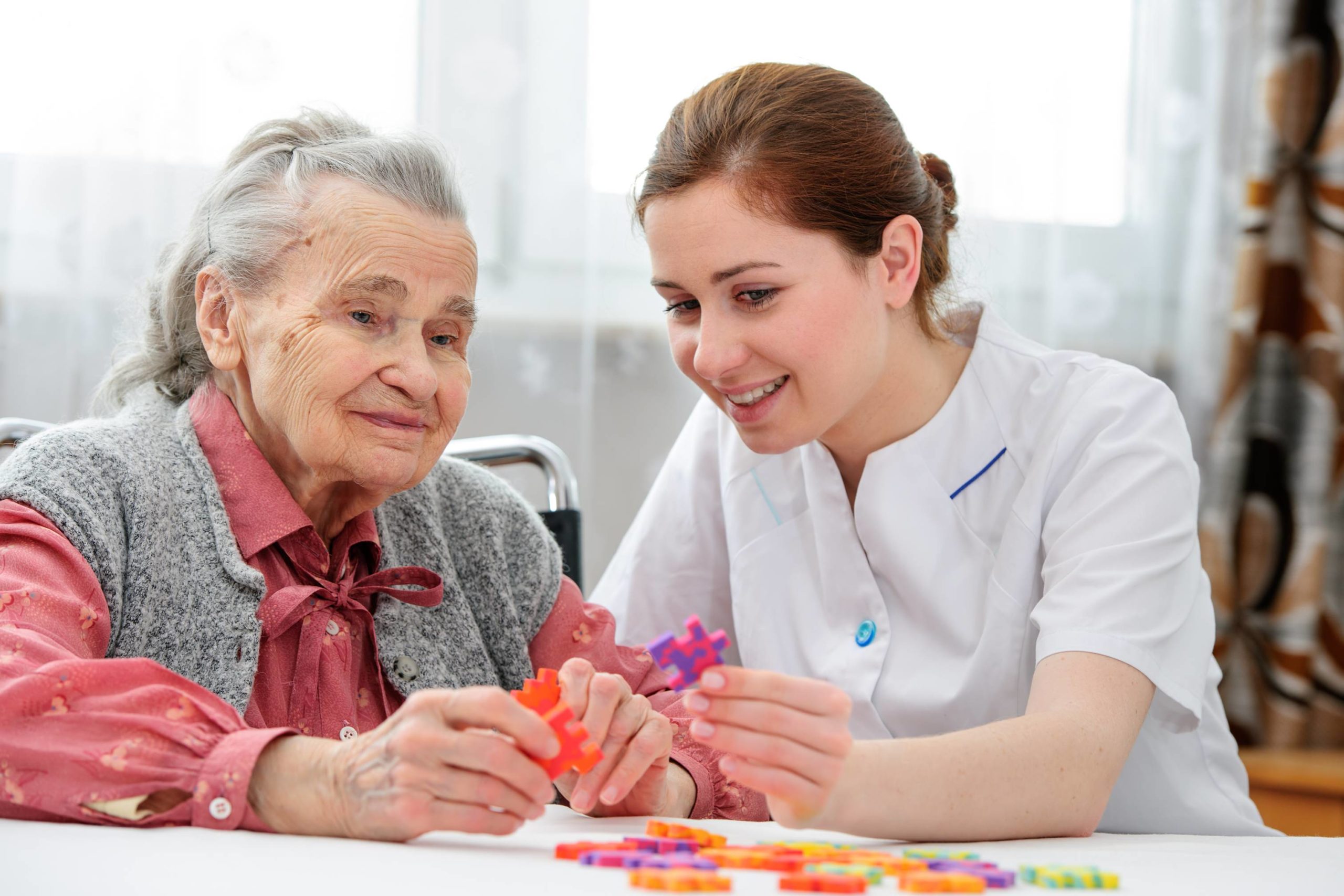Quality Memory Care Facility Charlotte: Where Empathy Meets Specialist Expertise
Quality Memory Care Facility Charlotte: Where Empathy Meets Specialist Expertise
Blog Article
Just How to Supply Significant and Tailored Dementia Care
The arrangement of tailored and purposeful mental deterioration care requires a nuanced understanding of each individual's special background and choices. Care approaches should be customized to involve the person in ways that resonate with their past experiences, thus fostering emotional connections and improving overall health.
Recognizing Mental Deterioration Originality

Care companies have to analyze cognitive capabilities, moods, and behavior patterns to create tailored treatment strategies. This might include adapting interaction styles, using familiar regimens, and using meaningful tasks that reverberate with the individual's past experiences. Involving a person with an enthusiasm for music through musical tasks may evoke positive memories and enhance psychological health.
Moreover, understanding originality cultivates a thoughtful strategy that respects the dignity and autonomy of those dealing with dementia. It motivates caretakers to listen proactively, observe behavioral cues, and remain versatile in their caregiving approaches (dementia care charlotte). By focusing on originality, caregivers can not just boost the high quality of life for those with mental deterioration but likewise develop an extra profound understanding of their distinct point of views, eventually leading to more effective and compassionate treatment
Structure Trust and Connection
Developing trust fund and relationship is basic in mental deterioration care, as it produces a safe and supportive atmosphere for people influenced by the problem. Structure these connections needs constant, thoughtful interactions that prioritize the needs and sensations of the individual. Caregivers need to approach communications with empathy, identifying the one-of-a-kind obstacles faced by those with dementia, including amnesia, complication, and emotional distress.
Caretakers should use clear, basic language and non-verbal signs to convey understanding and support. Active listening shows respect and validation, allowing individuals to express themselves without worry of judgment.
Developing a regimen can also improve depend on. Familiarity with day-to-day activities and caregivers advertises a feeling of security, enabling people to really feel more comfortable. It is vital to involve with individuals on a personal level, making the effort to find out about their life history, preferences, and passions. By doing so, caretakers reinforce the individual's identification, advertising self-respect and respect, inevitably bring about more powerful, a lot more purposeful connections in the context of dementia care.
Tailoring Activities and Involvement
Engaging individuals with dementia through tailored tasks can substantially boost their lifestyle and promote a deeper link in between caretakers and those in their treatment. Personalization is crucial, as it recognizes the special backgrounds, passions, and capacities of each person. Activities should be designed to boost cognitive functions, promote physical activity, and motivate social interaction, all while staying pleasurable and satisfying.
To tailor activities effectively, it is essential to examine the person's preferences and cognitive capacities. Additionally, integrating elements of regimen can supply convenience and security, allowing people to engage with activities extra confidently.
Caregivers can enhance engagement by getting involved together with the individuals, cultivating browse around this site a helpful and interactive setting. It is likewise essential to continue to be flexible and adaptable, changing tasks as needed based upon the individual's energy degrees and mood. Eventually, significant engagement via tailored tasks not only uplifts individuals with dementia yet additionally enhances the caregiver connection, advertising common enjoyment and understanding.
Effective Interaction Strategies
Effective communication is important in mental deterioration care, as it fosters a feeling of connection and understanding in between people and caregivers experiencing cognitive decline. Using reliable interaction techniques can dramatically boost the high quality of communications and lower disappointment for both parties.
Firstly, making use of easy, clear language is necessary. Short sentences and acquainted words aid individuals comprehend and react much better. Additionally, keeping a tranquility and favorable tone can produce a reassuring atmosphere, which is important for people that may really feel nervous or baffled.
Non-verbal communication plays a significant function as well. Caregivers need to take notice of body movement, faces, and motions, as these cues can frequently share more than words - memory care facility charlotte. Establishing eye call and making use of gentle touch can likewise communicate and reinforce connections empathy
Active listening is one more key element. Caretakers must listen, allowing people to express themselves totally, even if their speech is fragmented or unclear. This lionizes and motivates much more open communication.
Last but not least, validating feelings and experiences is vital. Recognizing emotions, despite their basis actually, can supply comfort and reinforce the caregiver-individual relationship, advertising a more encouraging atmosphere.
Supporting Family Members Involvement
Household involvement plays a significant role in the total care and assistance of people with dementia. Engaging member of the family creates a collaborative environment that enhances the quality of care, fosters psychological connections, and makes certain that the distinct requirements of the person are satisfied. Member of the family typically have important insights right into the person's history, choices, and behaviors, which can be critical in establishing individualized treatment techniques.

In addition, family participants can be motivated to take part in everyday treatment activities, such as participating in meaningful conversations or helping home with familiar regimens. This not only helps sustain the individual's sense of identity however likewise reinforces domestic bonds. Inevitably, by fostering a comprehensive approach that values family members contributions, treatment service providers can enhance the total experience for both individuals with mental deterioration and their loved ones.
Conclusion
Finally, providing meaningful go now and individualized dementia care requires an extensive understanding of each individual's distinct background and choices. Developing trust fund and relationship via caring interactions is necessary for developing a secure environment. Tailoring tasks to resonate with individual rate of interests improves emotional health and promotes self-respect. Effective interaction strategies additionally sustain this process, while proactively including family participants enriches the caregiving experience and fosters much deeper connections. Jointly, these strategies add to boosted lifestyle for individuals with dementia.
The arrangement of significant and personalized dementia care requires a nuanced understanding of each individual's one-of-a-kind history and preferences. By doing so, caregivers strengthen the person's identity, advertising self-respect and respect, ultimately leading to stronger, much more meaningful partnerships in the context of mental deterioration treatment.
Involving individuals with dementia through customized tasks can significantly boost their top quality of life and foster a much deeper connection between caregivers and those in their care.Family involvement plays a substantial role in the general treatment and support of individuals with dementia. Eventually, by promoting a comprehensive strategy that values household payments, treatment companies can improve the general experience for both individuals with mental deterioration and their enjoyed ones.
Report this page